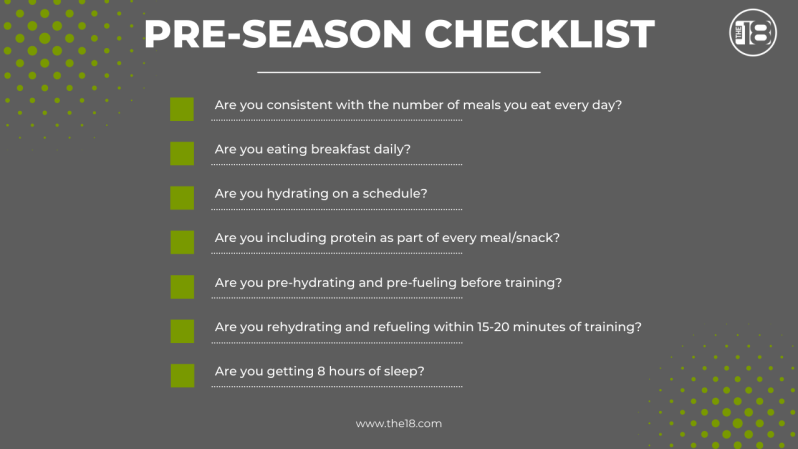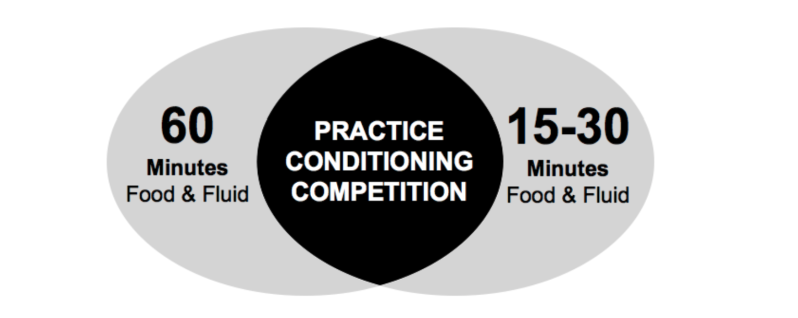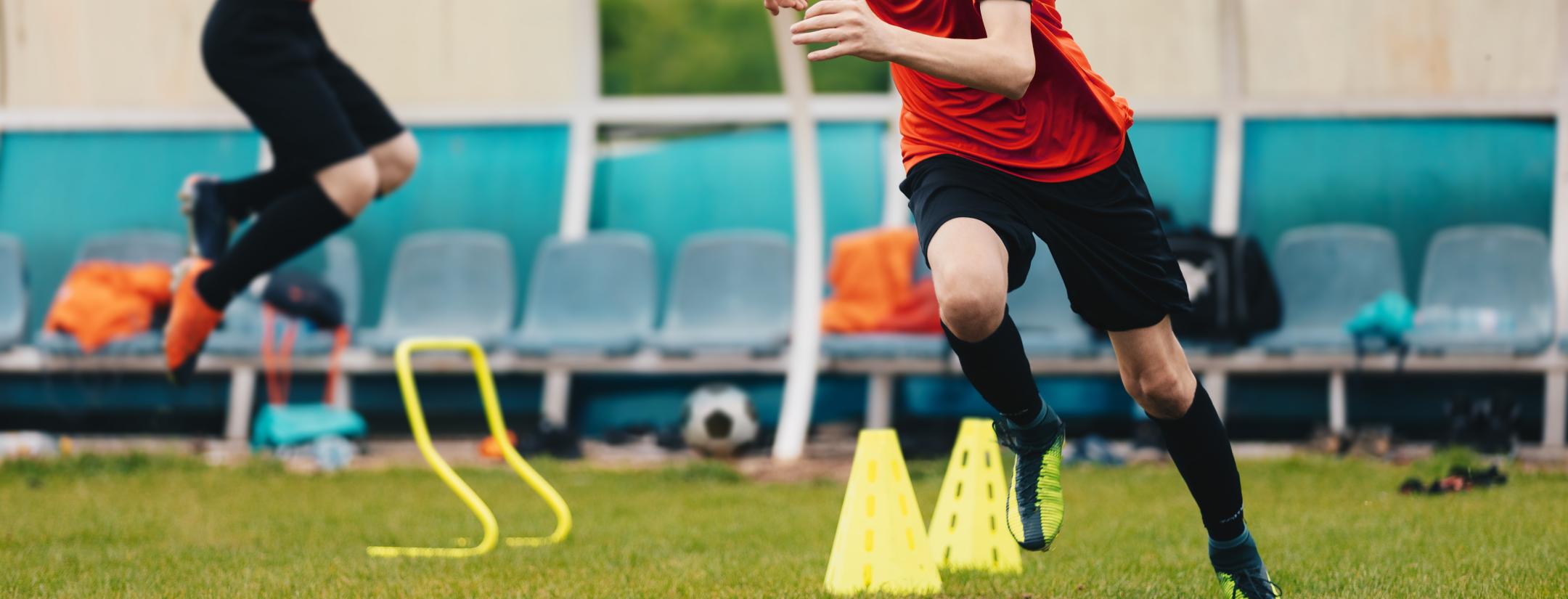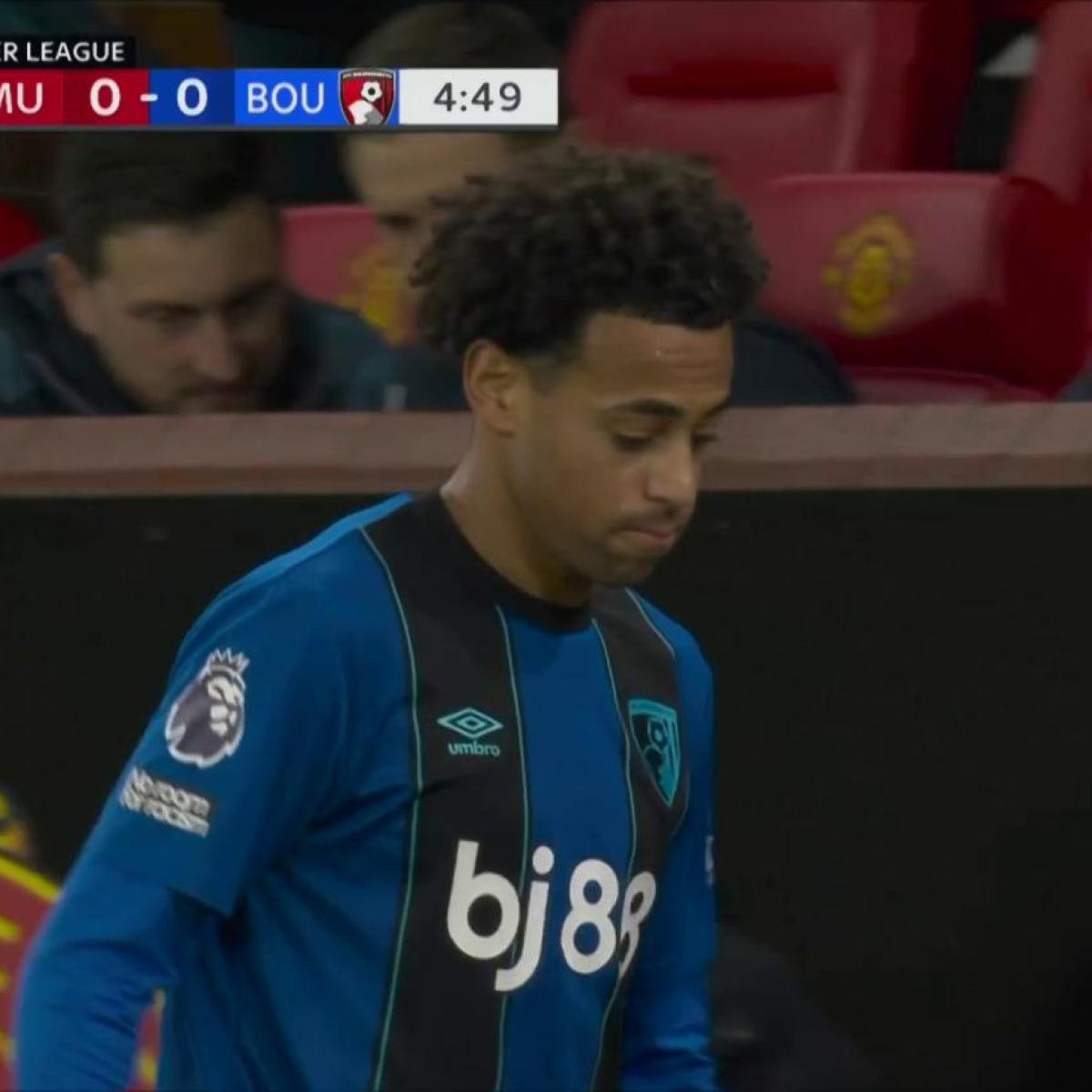Summer vacation is over. If you've been avoiding the heat by staying inside and relaxing on the couch in front of the TV with a selection of your favorite processed foods, the idea of whipping yourself into shape for the fall can certainly feel daunting.
But whatever your soccer goals, fitness ambitions or workout plans are, your best intentions can be sabotaged by failing to recognize the importance of nutrition, hydration and recovery in your daily training regimen.
It's an empowering fact that anyone, at any age can start to practice these daily habits that, when performed with routine consistency, can curtail our most destructive fitness behaviors while also taking us to the next level as soccer players.
Your Daily Performance Checklist
The key to developing good habits is to take things one day at a time, and the mental battle really becomes manageable when you break things down into a daily schedule.
"It doesn't have to be complicated," says Leslie Bonci, an accomplished registered dietitian nutritionist, "but it does have to be consistent. Elite soccer players are all about being out there every single day to fine-tune their skills. It needs to be the priority as much as everything else that soccer players do. The first question is, when you think about your strength, when you think about your speed, when you think about your energy and stamina, when you think about your recovery — is it as good as you want it to be? Or is there something that you want to work on?"

Photo: The18
How you're answering these questions doesn't need to be overly complex, particularly with regards to food assembly, but affirmative answers need to be there.
Hydration
Given the soaring temperatures across the country and the risk involved in training without being acclimated to the heat, staying hydrated is tantamount to preseason training. As well as regulating body temperature, hydration is important for digestion, transporting nutrients to cells and impacts our strength, speed, stamina, recovery and decreases the risk of injury.
You should aim for 20 oz. of fluid one hour before exercise or 10 oz. 15 minutes before. You obviously don't want to over drink to the point of discomfort, but take larger gulps rather than sips during exercise and don't waste all your liquid by spitting it out or pouring it over your head.

Photo Courtesy of Leslie J. Bonci, MPH, RD, CSSD, LDN
Eating on Schedule
It's tough ripping yourself out of bed in August to go to training, which gives rise to the habit of only giving yourself enough time to make it out the door and to the field. But showing up on empty is one of the quickest ways to short yourself.
"I think the big challenge of this, especially in hot weather, sometimes we just don't have an appetite," Bonci says. "Not everybody has air-conditioning in their homes. It's hard to sleep. You wake up hot and you think, 'Ah, eating food. I don't really want to because I didn't sleep well,' but you can't function well on empty.
"So, start to establish that eating schedule right now or, in other words, this idea of control what you can with your eating plan. You can't control the weather, you can't control who's the best player on the field — some people are more talented than others — you can't always control the position you're going to play because that's up to the coach, but what you can control is this hand-to-mouth activity. What are you doing? Are you showing up ready to do what you need to do?"
You should be eating something within an hour of waking up, without exception. That could be yogurt with fruit, a smoothie, a glass of chocolate milk with a banana or a PB&J.
From there it's about focusing on consistency and frequency. You should eat something every 4-5 hours to keep your energy up, to better distribute nutrients over the course of the day and to avoid being overly hungry and overeating later.
Best Practices and Actions
Establishing these healthy routines amounts to being proactive, preventative and protective in your approach. You're taking control of what you can and bringing a more robust, less injury prone version of yourself to training.
"From a performance nutrition perspective, you're always going to prepare for what you do and repair for what you did," Bonci says. "Those are the two doors and they never change. You can't just do one of them — both of those are critically important."
Since soccer is a demanding mixture of sprint and endurance, you need to have carbohydrates as an energy source and protein — although not a fuel source during exercise — because we're trying to keep muscle, not lose it.
Examples of Good Proteins and Carbs

Photo: The18
It's imperative to have what you need readily available during training, between two-a-day sessions and immediately post-practice. Your body needs to fuel and hydrate at breaks, but you also need to start the recovery process as soon as training is over — don't wait until you get home.
What's in your Bag?
Soccer practices and matches are incredibly demanding, so you want carbs and some protein, but having a little bit of fat also gives you sustained energy over a period of time. Fat is also critically important during periods of moderate intensity, like when you're tracking up and down the pitch.
"That's why peanut butter is ideal in that regard because it delivers all the protein, the fat and it makes that beautiful combo with carbs — you can put peanut butter on bread, you can put it on a bagel, you can make little peanut butter bites with peanut butter, jam and some oats," Bonci says. "It's simple. Cheap. Those types of things all really work well and check all the boxes."
Foods: Trail mix, crackers, jerky, peanut butter and jelly sandwich, peanut butter crackers, peanut butter or cheese filled pretzels, granola bar, fruit, popcorn, pretzels, nuts
Liquids: Extra water bottles, packets of powdered sports drink mix, packets of powdered lemonade
A term like "healthy options" can fall on deaf ears, but when you start to think of your food in terms of its added value — what's giving you the biggest bang for your buck when it comes to strength, speed and stamina — then it becomes much easier to act on your plans.
What to Avoid
An increasingly popular weight loss technique is intermittent fasting, which calls for the intake of calories only within a specific period of time. While it might be an appropriate weight loss technique for people who struggle with the consuming very little throughout the day and then overeating at night or with snacking continuously up until bedtime, it's not an approach athletes should take for getting in shape.
"Number one, the studies have really not shown that it's any better than any other way to lose weight," Bonci says. "Number two is intermittent fasting is really hard when you're physically active. Unless you're timing your eating in that window of activity, that won't work. So, you're already at a disadvantage when you start and then you're not recovering when you're done. Recovery happens over a number of hours, not just right away after exercise. If you curtail your eating too early, then you're delaying that recovery and that does not make you a better athlete."
There's also a benefit to a pre-bed snack to help the body recover and restore itself for the morning, although you want to give your stomach enough time to empty so that it's not wide awake while you're trying to sleep.
Another mistake is to prioritize physique over performance. Everyone wants to look like their favorite player on Instagram, but the shortcuts you take to getting six-pack abs won't benefit you over the course of 90 minutes on the pitch.
"There's a lot of innacurate information out there in this space," Bonci says. "Everybody eats; therefore, everybody is an expert. Wrong. Unfortunately, a lot of the 'sinfluencers' putting things out there are like: 'You shouldn't have any carbs.' Alright, you try that and be a soccer player. It's performance first and then we work on the physique. Often times to get to that look, it's more about what you're not eating than what you do eat, and that often times compromises performance, muscle, bone and all those things. There are a lot of consequences. I don't like unintended consequences."
By taking control of how you eat, when you eat and what you eat, you become proactive in preventing and protecting yourself from injuries while maximizing your chances of success on the pitch by bringing the best version of yourself to training on a daily basis.
It doesn’t have to be complicated — peanuts and peanut butter are an excellent, ready-to-eat and portable food source that allows you to minimize meal-prep time while delivering the protein, fiber, vitamins and minerals of healthy nutrition — it just has to be consistent.




